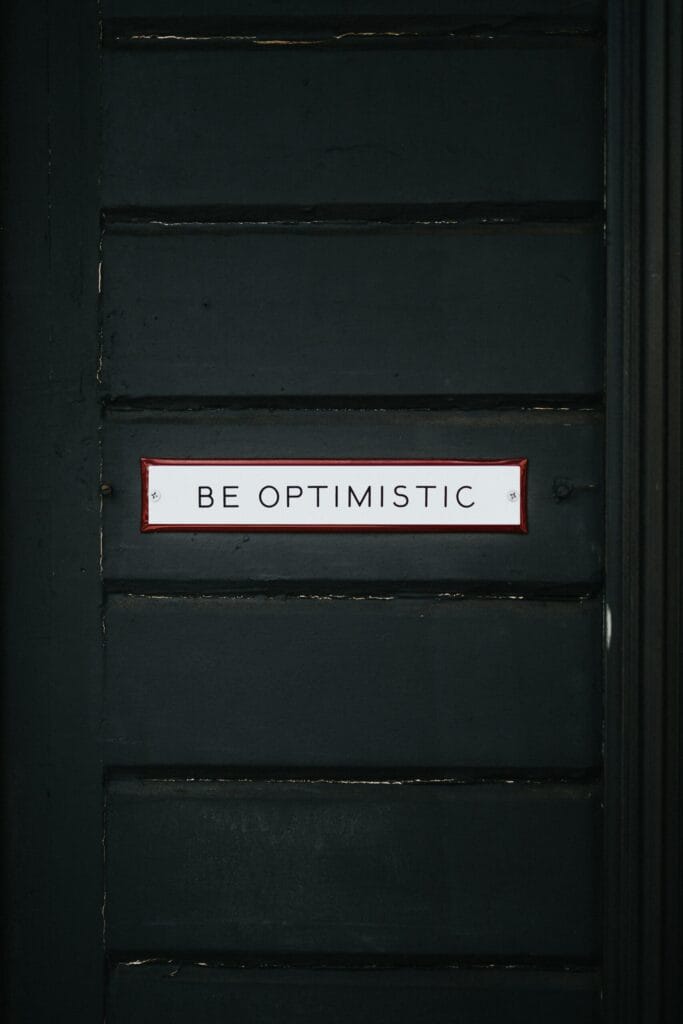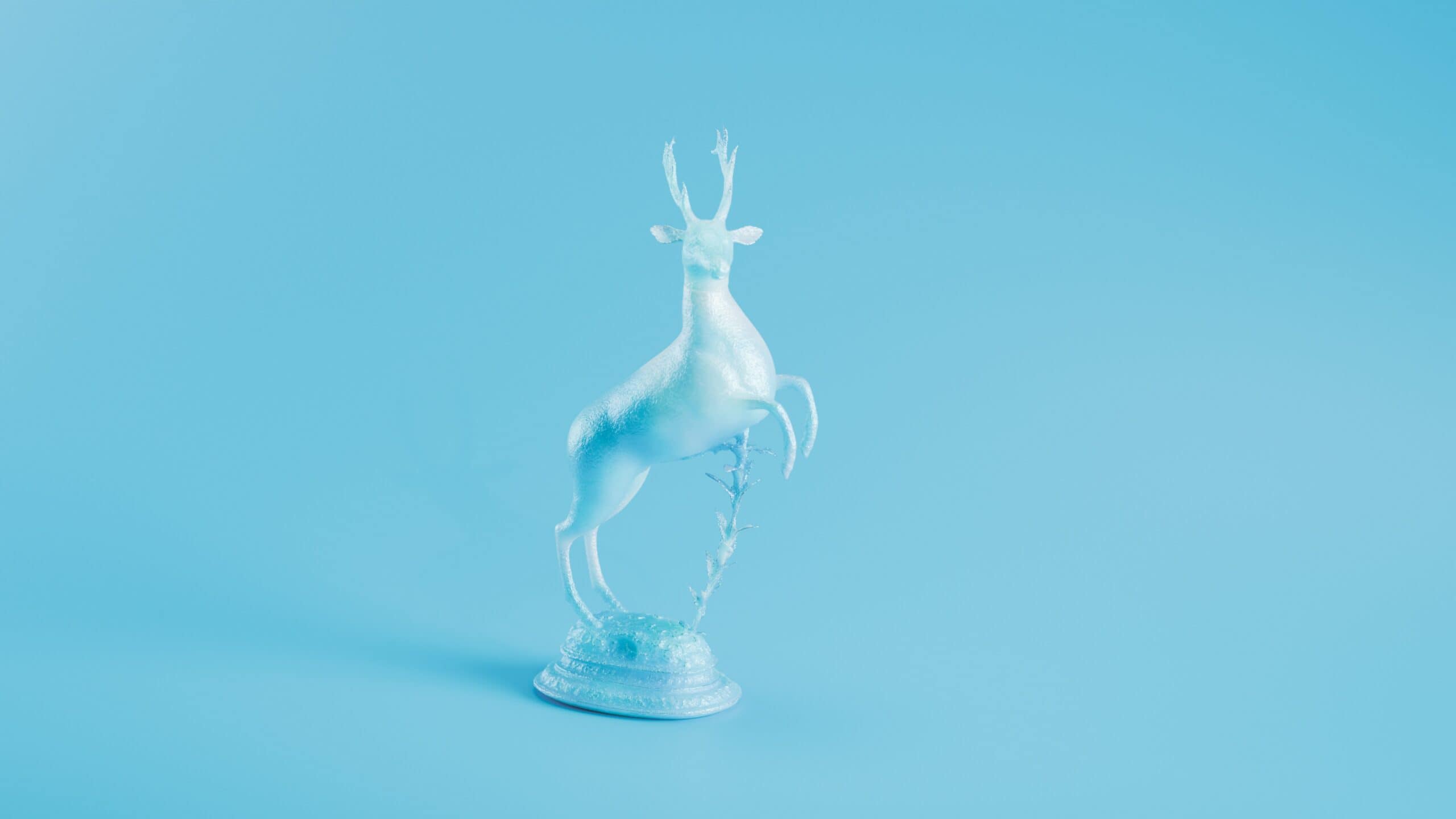The Power of a Minimalist Mindset: Embrace Simplicity for a Fulfilling Life

Table of Contents
Understanding Minimalism: Beyond Decluttering
Minimalism is often mistakenly perceived as merely a method of physical decluttering, which primarily focuses on reducing material possessions. However, this perspective overlooks the broader implications of a minimalist mindset. At its core, minimalism is a lifestyle choice that transcends the act of cleaning out a closet or disposing of unwanted items. It revolves around simplifying various aspects of our lives, including our thoughts, habits, and priorities.
One fundamental principle of minimalism is intentionality. This involves being mindful about what we invite into our lives, whether it be physical possessions, relationships, or commitments. By adopting a more selective approach, individuals can cultivate a more satisfying existence, free from the noise and clutter that often leads to stress and overwhelm. Consequently, minimalism encourages individuals to focus on what truly matters, which can be a transformative experience.
Moreover, embracing a minimalist mindset can significantly enhance decision-making processes. When one recognizes the overwhelming nature of excessive options, the clarity that comes from minimalism becomes evident. By narrowing choices and focusing on core values, individuals can approach decisions with greater confidence and ease, reducing the anxiety that often accompanies indecision.
Additionally, minimalism fosters a deeper relationship with time. By prioritizing essential activities and responsibilities, individuals can dedicate their energy toward pursuits that yield genuine fulfillment. This, in turn, leads to a more balanced and harmonious life. Such a mindset encourages the cultivation of deeper connections with people, experiences, and passions rather than being bogged down by trivial concerns.
In essence, minimalism is an empowering philosophy that invites individuals to embrace simplicity not just in their possessions, but in their thoughts and actions. By intentionally curating every aspect of life, one can unlock a more meaningful existence, driving home the idea that less is often more.
The Psychological Benefits of Minimalism
The adoption of a minimalist mindset can lead to numerous psychological advantages that significantly enhance overall well-being. One of the most notable benefits is the reduction of stress. In a world filled with distractions and overwhelming commitments, minimalism encourages individuals to declutter not just their physical surroundings but also their mental landscapes. By focusing on what is essential and eliminating the superfluous, individuals often experience a newfound sense of calm and control over their lives.
Research supports the assertion that minimalism reduces anxiety levels. A study conducted by the University of Southern California found a strong correlation between cluttered living spaces and elevated stress levels, with subjects reporting lower satisfaction in their lives when surrounded by excessive possessions. By practicing minimalism, individuals can create environments that foster relaxation and promote emotional well-being. This simplification often leads to increased mental clarity, allowing for clearer thoughts and improved problem-solving capabilities.
In addition to stress reduction and mental clarity, minimalism enhances focus. A minimalist approach encourages individuals to prioritize their goals and concentrate on their passions, which can lead to heightened productivity. When individuals eliminate distractions—both physical and mental—they are better equipped to dedicate their attention to tasks that matter most. Furthermore, improved focus can facilitate better decision-making. With a clear mind and a streamlined approach, individuals are likely to make choices that align more closely with their long-term values and aspirations.
Numerous anecdotes highlight these psychological benefits. For instance, individuals who have embraced minimalism often report a stronger sense of purpose and fulfillment in their lives. By intentionally simplifying their lives, they cultivate a deeper appreciation for experiences rather than possessions, which in turn fosters emotional resilience. Overall, the psychological advantages of a minimalist mindset are significant, leading to improved mental health and a more satisfying life experience.
Financial Freedom through Minimalism
Adopting a minimalist mindset can significantly contribute to one’s financial freedom by promoting a lifestyle centered around simplicity and intentionality. At the core of minimalism lies the philosophy of reducing unnecessary expenses and focusing on what truly matters. This shift encourages individuals to evaluate their purchases critically, leading to more mindful consumption habits. Rather than acquiring items out of impulse or societal pressure, minimalist principles advocate for thoughtful decisions that prioritize functionality and value.
One of the most impactful ways minimalism fosters financial well-being is by helping individuals distinguish between needs and wants. By consciously limiting spending to only essential items, people can redirect their financial resources towards experiences and activities that enrich their lives. For instance, instead of investing money in a new dining set or luxury clothes, a minimalist might choose to spend on travel, education, or personal growth opportunities. These experiences often yield long-term satisfaction and fulfillment, overshadowing the fleeting pleasure derived from material possessions.
Additionally, minimalism can lead to reduced financial stress. When individuals simplify their lives, they often realize the burden that excess material goods impose. Managing clutter, maintaining owned items, and allocating time for unnecessary purchases can be overwhelming and financially draining. By embracing a minimalist lifestyle, one can streamline their financial management, leading to more straightforward budgeting and increased savings. Over time, these practices can culminate in significant savings, providing more significant financial freedom and capacity to pursue life-enhancing experiences.
In conclusion, the minimalist mindset fosters an environment where intentional living takes precedence, ultimately paving the way toward financial freedom. Through mindful consumption, prioritizing valuable experiences, and minimizing unnecessary expenses, individuals can cultivate a fulfilling life characterized by stability and purpose.
Strengthening Relationships with Minimalism
Adopting a minimalist mindset can significantly enhance the quality of our relationships by allowing us to focus on what truly matters: the connections we share with others. By simplifying our lives and reducing material clutter, we create more space—both physically and mentally—for meaningful interactions and experiences. This intentional shift can lead to stronger bonds, improved communication, and a renewed appreciation for shared moments.
When individuals prioritize relationships over possessions, they are more likely to invest time and energy into nurturing connections with family, friends, and loved ones. Minimalism encourages the reduction of distractions that often accompany a materialistic lifestyle, such as excessive social engagements or the pressure to acquire the latest items. This newfound focus enables us to engage in deeper conversations and more fulfilling activities, as we are less likely to be preoccupied by external factors.
In a minimalist approach, individuals are encouraged to create opportunities for shared experiences rather than material acquisitions. Engaging in activities such as hiking, cooking together, or simply enjoying a leisurely walk fosters deeper connections. These experiences can invoke a sense of joy that far exceeds the fleeting satisfaction brought by material goods. By sharing time and meaningful moments, individuals can create lasting memories which often become the foundation of strong, resilient relationships.
Additionally, minimalism promotes better communication by encouraging openness and vulnerability. With fewer distractions, individuals can engage in honest dialogues, leading to enhanced understanding and empathy among friends and family. This openness allows relationships to flourish, providing a support network that thrives on shared values and experiences rather than on possessions.
Embracing minimalism ultimately leads to a more enriching life where relationships are prioritized, creating deeper bonds that enhance overall well-being. By focusing on the essence of connections, individuals can cultivate a fulfilling life defined by supportive relationships rather than material possessions.
Personal Growth and Minimalism
Adopting a minimalist mindset can significantly contribute to personal growth by encouraging individuals to prioritize what truly matters in their lives. In a world filled with distractions and excess, simplifying one’s environment and mental space can lead to a clearer vision of personal goals and values. When individuals focus on essential priorities, they often find that they are more aligned with their authentic selves, leading to a more fulfilling and meaningful life.
Minimalism promotes self-discovery by inviting individuals to examine their thoughts, behaviors, and material possessions. This examination fosters an awareness of what is genuinely important, prompting a shift from quantity to quality in various aspects of life. By eliminating the superfluous and retaining only what adds value, individuals can create room for introspection and personal development. This process allows them to uncover passions and interests that may have been overshadowed by a cluttered lifestyle.
Moreover, embracing minimalism supports the cultivation of mindful habits and intentional living. Mindfulness, in this context, encompasses being present and fully engaged in each moment, which is crucial for personal development. By reducing distractions, individuals can better focus on their goals, leading to improved productivity and a greater sense of accomplishment. Intentional living encourages thoughtful decision-making, enabling individuals to make choices that resonate with their core values rather than impulsively reacting to external pressures.
In conclusion, the intersection of personal growth and minimalism reveals that adopting a minimalist mindset can pave the way toward self-discovery and intentional living. By prioritizing what truly matters, individuals can foster a deeper understanding of themselves and cultivate habits that enhance their overall well-being, leading to a more genuine and fulfilling life experience.
Practical Tips for Embracing Minimalism
Embracing a minimalist mindset invites individuals to reflect on their lives and prioritize what truly matters. The journey to simplicity often begins with decluttering one’s physical space. Start by identifying items that no longer serve a purpose or contribute to your happiness. This can involve going through each room and categorizing belongings into keep, donate, and discard piles. Allocating a specific time frame for this task can prevent procrastination and make the process manageable. Consider tackling one room or area at a time, focusing on smaller sections to attain a sense of accomplishment.
Mindful consumption is another vital aspect of minimalism. Evaluate your buying habits by questioning the necessity of each purchase. Before acquiring new items, ask yourself if they will add value to your life or merely contribute to clutter. Opt for quality over quantity, and seek out products that are durable and versatile. Additionally, adopting a one-in-one-out policy can help maintain balance; for instance, whenever you bring in a new item, consider removing an existing one.
A digital detox is also essential in today’s technology-driven world. Evaluate your digital life by unsubscribing from unnecessary emails, unfollowing redundant social media accounts, and deleting applications that consume time without adding value. Schedule regular breaks from screens to reconnect with your environment and reduce mental clutter. Limit your exposure to information overload by following only a few trusted resources, allowing for greater focus on personal development.
Lastly, set deliberate life goals that align with minimalist principles. Reflect on what brings genuine fulfillment and prioritize activities that resonate with those values. By concentrating on meaningful pursuits rather than material possessions, you create a life that truly reflects your desires. In this way, minimalism becomes a guiding principle that enhances clarity, purpose, and ultimately, satisfaction in day-to-day living.
Mindful Consumption: Less is More
In a world saturated with consumer choices, the principle of mindful consumption advocates for a deliberate approach to what we acquire and use. Mindful consumption encourages individuals to shift their focus from the mere act of acquiring goods to a more profound appreciation of the purchases they make. This approach aligns closely with a minimalist mindset, fostering an environment where less truly becomes more. By prioritizing quality over quantity, individuals can achieve greater satisfaction with fewer possessions.
At its core, mindful consumption involves assessing the necessity and impact of each purchase. This means asking pertinent questions such as: Will this item add real value to my life? Does it serve a purpose beyond mere aesthetics? By examining the functionality and relevance of each item, one can curtail the impulse to buy items that do not contribute to their well-being. This practice not only diminishes clutter but also nurtures a sense of contentment and gratitude for what we already possess.
Furthermore, mindful consumption enables individuals to make more informed decisions regarding sustainability and ethical considerations. Choosing products that are environmentally friendly or sourced from responsible manufacturers helps reduce one’s ecological footprint. This aspect of mindful consumption aligns seamlessly with the ideals of minimalism, where the goal is to live in harmony with our environment and make choices that reflect our values.
Ultimately, by embracing mindful consumption, we foster a greater appreciation for simplicity in our lives. As we cultivate a mindset centered on quality and intentionality, we are empowered to create fulfilling experiences rather than simply accumulating material possessions. This transition not only enhances our overall satisfaction but also establishes a profound connection between our lifestyle choices and our happiness in a clutter-free life.
Digital Minimalism: Clearing the Clutter in the Digital World
In an era dominated by technology, the concept of digital minimalism has gained significant traction. This approach advocates for a conscious reduction in digital clutter, aiming to enhance focus, improve mental health, and increase overall productivity. With endless notifications, emails, and social media updates, many individuals find their attention fragmented and their mental clarity compromised. Adopting a digital minimalist mindset can help restore balance and create a more fulfilling connection to technology.
To begin the journey towards digital minimalism, one must conduct a thorough digital declutter. This process involves evaluating the apps, subscriptions, and platforms currently in use. It is essential to assess whether each digital tool adds value to personal or professional life. By eliminating the unnecessary, users can streamline their digital environments, allowing for greater focus on tasks that genuinely matter. This intentional curation of one’s digital ecosystem not only reduces distractions but can also alleviate feelings of overwhelm often associated with excessive digital engagement.
Additionally, setting boundaries is crucial for maintaining a healthy relationship with technology. Designating specific times for checking emails or engaging on social media can foster mindfulness and reduce the compulsive need to respond immediately. Implementing techniques such as the Pomodoro Technique—where work is divided into intervals with scheduled breaks—can further enhance productivity while mitigating the constant barrage of digital interruptions.
Furthermore, utilizing tools such as website blockers and app limiters can assist in minimizing distractions. Prioritizing digital downtime, where one intentionally disconnects from all screens, can also contribute to improved mental well-being. Regular breaks from technology allow for better reflection and rejuvenation, ultimately leading to an increased capacity to engage meaningfully with both personal and professional pursuits.
Setting Intentional Goals: Minimalism in Action
Adopting a minimalist lifestyle goes beyond decluttering physical possessions; it extends into the realm of personal aspirations and goals. Setting intentional goals is a fundamental practice for anyone embracing minimalism, allowing individuals to align their actions with what truly matters in their lives. By clearly defining these goals, one can cultivate an environment rich in purpose and clarity, directing energy and resources toward pursuits that provide genuine fulfillment.
The process begins with self-reflection, an essential step in identifying personal values and priorities. Individuals should assess what brings them joy and satisfaction, as this analysis helps illuminate the goals that resonate with their core beliefs. For instance, someone who values experiences over material goods might set a goal to travel more frequently or spend quality time with loved ones. Such clarity enables individuals to focus more on activities that enrich their lives, rather than competing with external expectations or societal pressures.
Moreover, minimalism encourages the breaking down of larger aspirations into actionable, manageable steps. This practice not only fosters motivation but also enhances accountability. Each small goal achieved serves as a reinforcement of one’s commitment to a minimalist mindset. By adopting this incremental approach, individuals can maintain focus on their essential objectives, ensuring that each decision and action effectively mirrors their desired lifestyle.
In concluding the discussion on the importance of intentional goal-setting within a minimalist framework, it is paramount to recognize that aligning one’s actions with personal values leads to a more fulfilling existence. Through proactive goal formulation, individuals can preserve their energy for what truly counts, thereby cultivating a holistic sense of well-being that reflects their minimalistic approach to life. Thus, as one endeavors on the journey of minimalism, setting clear and intentional goals will invariably become a cornerstone of an enriched and meaningful existence.
Read more at BMinimalist.com






